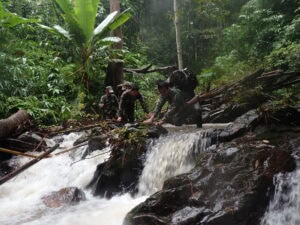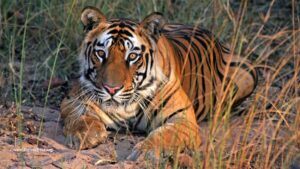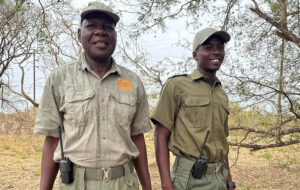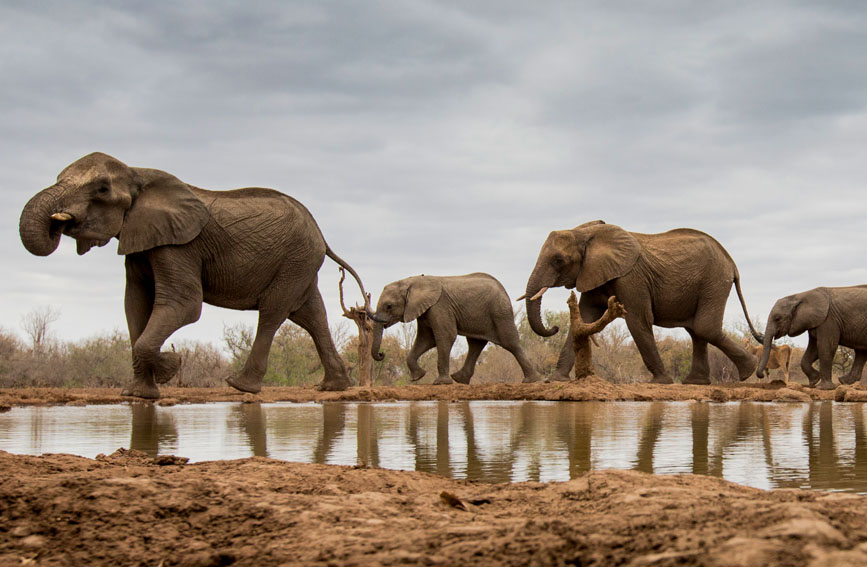Carrying Hope to Conservation Teams Across the World

Thin Green Line has been fortunate to have a dedicated family of Australian rangers standing alongside its mission to support rangers, raising funds for their less fortunate colleagues around the world.
A few dedicated conservationists have journeyed great distances this year to better understand the situations many teams are facing in different countries, and also to offer help.
Connecting with nature’s guardians in Uganda
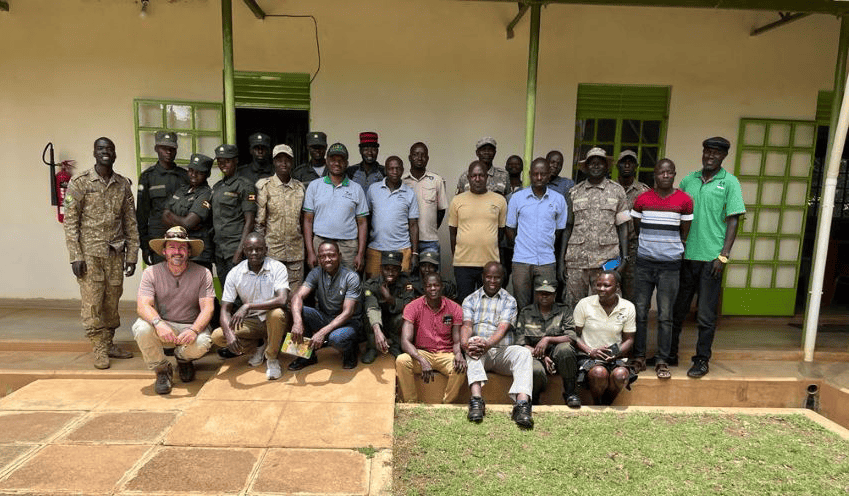
Phil Wise travelled to Uganda in September 2023 to visit rangers facing extremely challenging situations protecting wildlife and wild places. He understands the needs of rangers very well, and he knows the extent of their tasks, working with very limited equipment.
Phil describes his extensive journey through Uganda as an out-and-out privilege.
“The ranger staff I have met here are at the highest level of professionalism, in challenging circumstances,” Phil said. “Like rangers all around the world, they do the absolute best they can with the available resources.”
“There is still plenty more needed to help them do their jobs safely and effectively – and the rangers and park staff I have met with have been very forthcoming about how the Thin Green Line community might be able to help.”
Phil says that the many people he has met living in regional areas and relying on subsistence farming livelihoods are ‘absolutely beautiful’.
“The Uganda Wildlife Authority work closely with people living on the boundaries of protected areas,” said Phil. “The community rangers try to ensure that people see the benefits that come with conservation and have ways to make a living that don’t involve the destructive use of park resources.”
Silent killers of endangered species
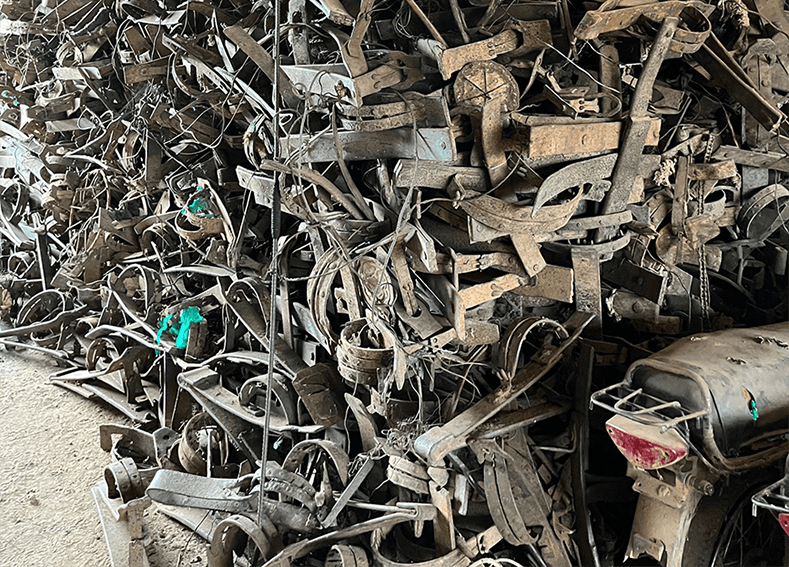
“I was taken to the storage facility at Murchison Falls National Park and shown the sheer volume of snares, traps, and spears that the rangers have removed just in the last year,” said Phil. “I can’t even begin to imagine how little would be left living in these protected areas if it wasn’t for the efforts of all the staff here.”
The rangers there have retrieved about 47 tonnes of snares and other traps over the past 10 years. An incredible collection of torturous, deadly weapons against wildlife.
Snares kill and maim animals indiscriminately. They’re like a minefield for the many different creatures that make their homes in the protected area.
The 12 tonnes of traps collected in the last year is now called ‘snare mountain’. At the bottom are so-called bear traps, used by poachers to catch elephants, hippos and lions. At the top are wire snares used for smaller animals.
“As the warden here at the park told me, a single poacher might set 20 snares in a day,” Phil said. “Multiply that by multiple poachers and you get the picture of how many animals may be indiscriminately dying horrible deaths or being injured here.”
A tiny nation’s dedicated team

Phil’s fundraising efforts have been extraordinary. In 2022, he and his Tasmanian colleagues raised enough to help buy motorbikes for the ranger team on Timor Leste.
The forest guards at Nino Konis Santana National Park, Timor Leste’s only protected area, last had new motorbikes in 2010. They were cheap and lasted three or four years before being irreparable. Since then, they used their personal bikes for work with no recompense.
In early 2022, five new motor bikes were delivered, along with first aid kits, backpacks, rain jackets, tents, and solar chargers. This equipment was provided through a combined effort by Conservation International, the Tasmanian Ranger Association and Thin Green Line.
Amanda’s amazing expedition
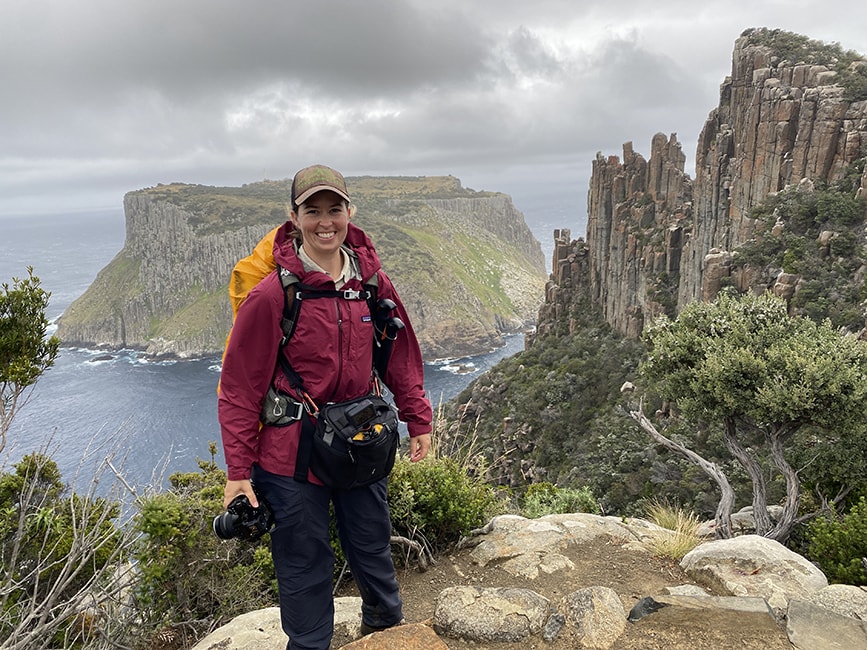
Rangers are at their best working as a team. Facing so many challenges, rangers’ capabilities are immeasurably enhanced when the team collectively uses its skills and knowledge. Sometimes that collaboration can come from an unexpected person – or across the ocean.
Starting on World Ranger Day (31 July) in 2022, Amanda Dudgeon commenced a 12-month, self-funded, solo expedition around Oceania, to raise funds for ranger teams and highlight the critical roles of rangers as conservation professionals and emergency responders.
Her expedition also honoured the sacrifices of rangers who lost their lives defending wildlife and wild places across the world. During the journey, Amanda hiked a total of 1610km; one kilometre for each ranger whose death in the line of duty was recorded by the International Ranger Federation since 2009.
On her journey, Amanda visited ranger teams operating in Tonga, Fiji, Samoa, Timor-Leste, the Solomon Islands, New Zealand, and Papua New Guinea. She recorded their stories in preparation for a documentary focusing on the complexity and importance of rangers’ work on the forefront of conservation in Oceania.
As a ranger herself, Amanda understands first-hand the daily challenges rangers face.
“It’s the best job in the world,” she said. “It’s also one of the toughest jobs out there.”
“It can be thankless; it can be very emotionally impacting – seeing your park incinerated in an unprecedented wildfire or wiped out by floods; or seeing animals suffer, or seeing your colleagues suffer – it’s challenging but at the same time it’s very rewarding, and so critically important. To know that every day you’re making a difference for the future. That’s what gets you up in the morning.”
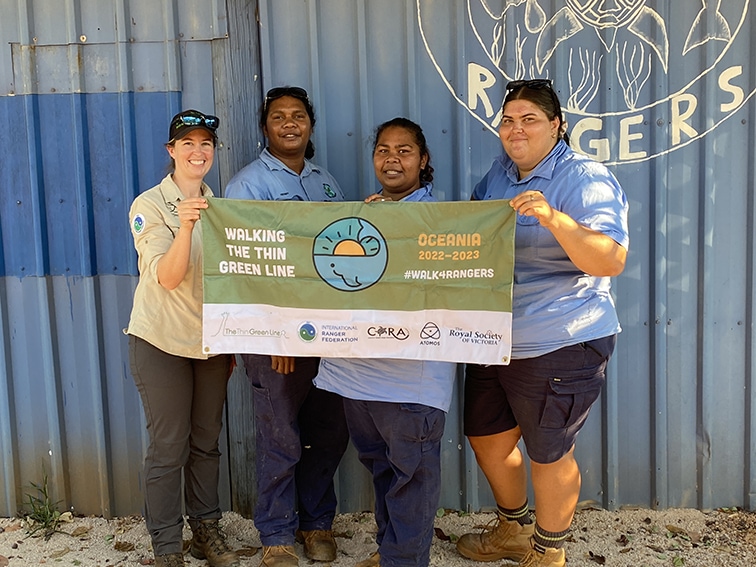
If you’d like to support these amazing people with their initiatives raising funds for rangers, please visit the respective pages:
Phil Wise – Fundraising for Ugandan Rangers
https://thingreenline.org.au/campaign/ugandan-rangers/
Amanda Dudgeon – Fundraising for Oceania Rangers
